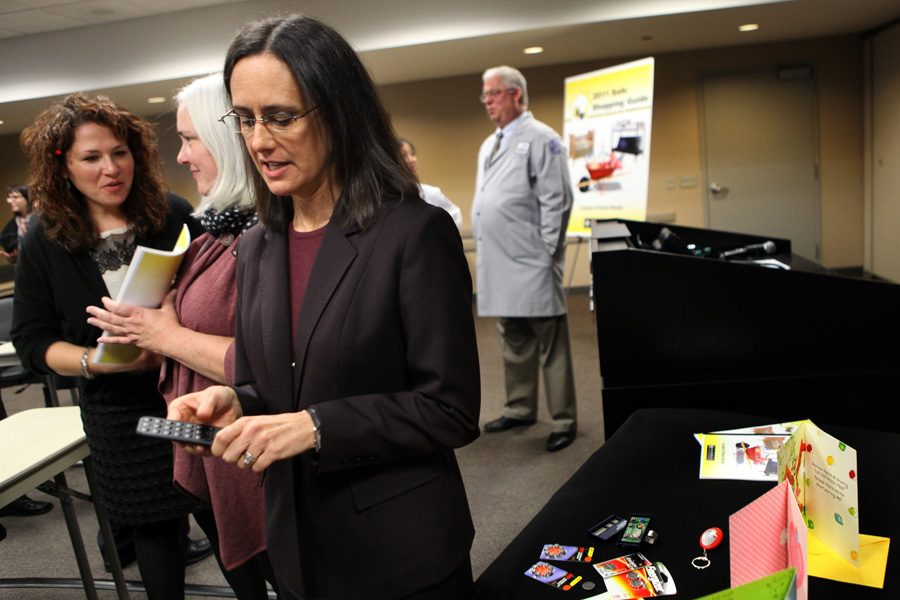State attorney general presses Gov. Bruce Rauner on immigration executive orders
Nancy Stone, Chicago Tribune/MCT
Illinois Attorney General Lisa Madigan holds a press conference in Chicago in 2011. Madigan sent a letter to Gov. Bruce Rauner on Tuesday urging him to not enforce several of President Donald Trump’s executive orders limiting immigration.
February 8, 2017
Attorney General Lisa Madigan sent a letter to Gov. Bruce Rauner on Tuesday urging him to not enforce several of President Donald Trump’s executive orders, including one limiting immigration.
According to a news release, Madigan named three orders that impact Illinois: one that instructed the Department of Homeland Security to authorize local law enforcement agencies to serve as immigration officers; another that would pull federal grant funding from sanctuary cities and a third that imposed a temporary travel ban on refugees and people from seven Muslim-majority countries.
Madigan said Rauner has a responsibility to work against the order. Madigan wrote that the lives of immigrants and refugees from Illinois have been “upended.”
“Use your authority as the Governor of one of the most diverse states in the nation to protect all of the residents of Illinois — along with our employers and educational institutions — from the harm caused by these executive actions,” Madigan wrote in the letter.
Madigan urged Rauner to resist against Homeland Security requests to have local law enforcement officers serve as immigration authorities, because it would take away already “scarce resources” and would “undermine” the country’s values.
Eleni Demertzis, a spokesperson for Rauner, said in a statement that the governor had “no intention” of deputizing the Illinois State Police as immigration officers.
Madigan also suggested the governor devote more resources to the Bureau of Refugee and Immigrant Services within the Illinois Department of Human Services, which helps immigrants and refugees settle in the state.
According to the news release, 1,001 refugees entered Illinois from the beginning of October 2016 to the end of January.
In November 2015, Rauner announced a temporary closure of Illinois to Syrian refugees following the Paris attacks that month. However, governors have little control over the issue because the federal government handles refugee resettlement.
After Trump signed the executive order banning Syrian refugees and limiting immigration, Rauner released a statement urging “swift resolution” of concerns raised over the order.
Rauner spokeswoman Catherine Kelly said the governor was “opposed to immigration bans that target any specific religion” at the time, and that the country needed to “balance” security concerns with the tradition of “welcoming immigrants and refugees.”
In the letter, Madigan also urged Rauner to pledge strong enforcement of the state’s anti-discrimination laws and defense from hate crimes.
Demertzis said in the statement that Madigan’s letter was “detached from reality,” and that the governor has supported refugees settling in the state and had signed legislation strengthening Illinois’ hate crime statutes in the past.
Madigan also filed an amicus curiae brief on Friday in the the U.S. Circuit Court of Appeals for the 9th Circuit in San Francisco in support of a lawsuit filed there that challenges the executive order on immigration.
The order was halted by a federal judge in Washington state on Friday. That decision was appealed, but the appeal was stayed over the weekend. Madigan filed the brief along with 15 other attorney generals.
“Our country was built by immigrants and refugees who came here in search of a better life,” Madigan said in the statement. “Illinois is home to nearly 2 million immigrants who contribute to our state in invaluable ways. I will fight to ensure Illinois remains a safe and welcome home for immigrants and refugees.”
Email: [email protected]
Twitter: @noracshelly












